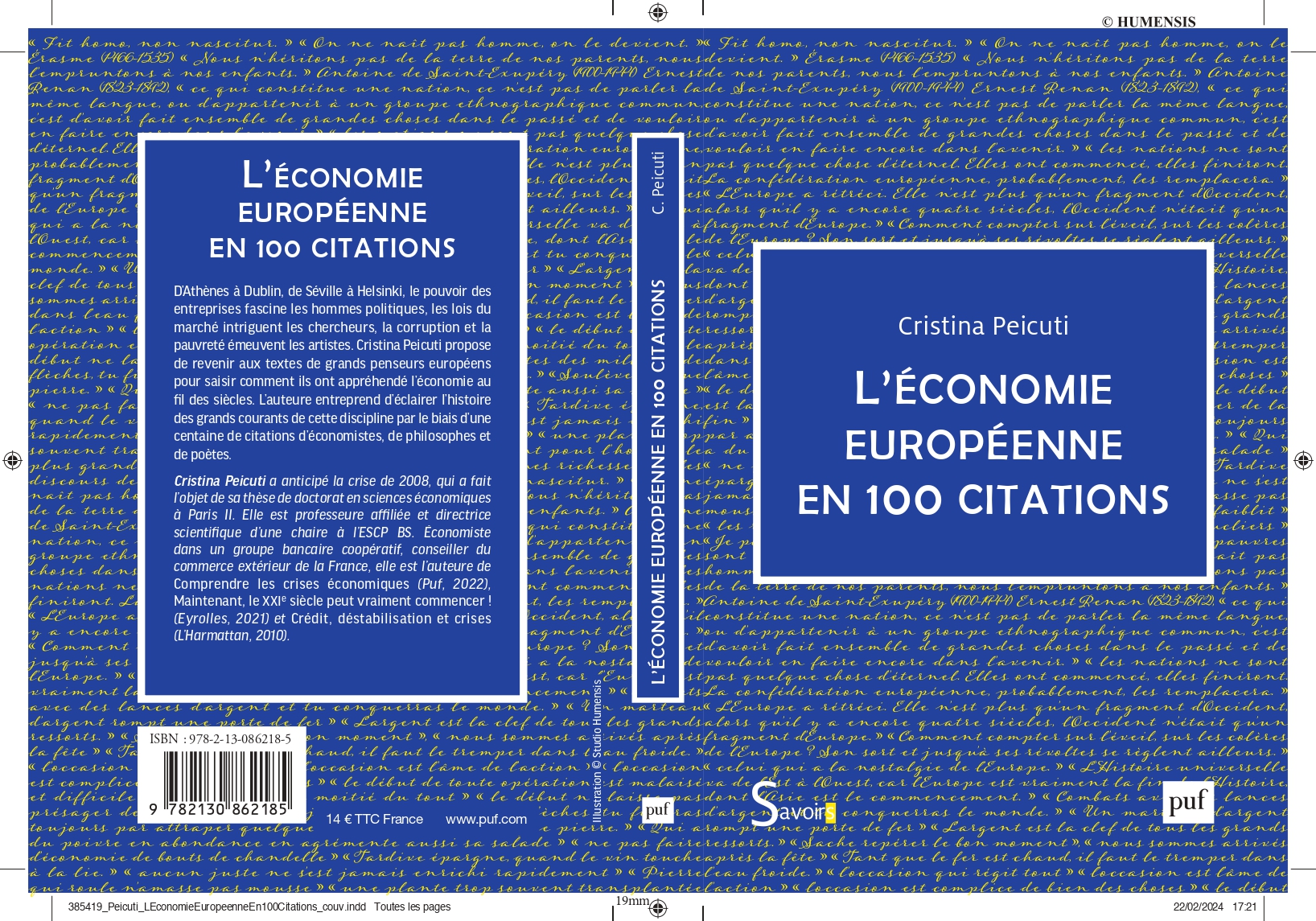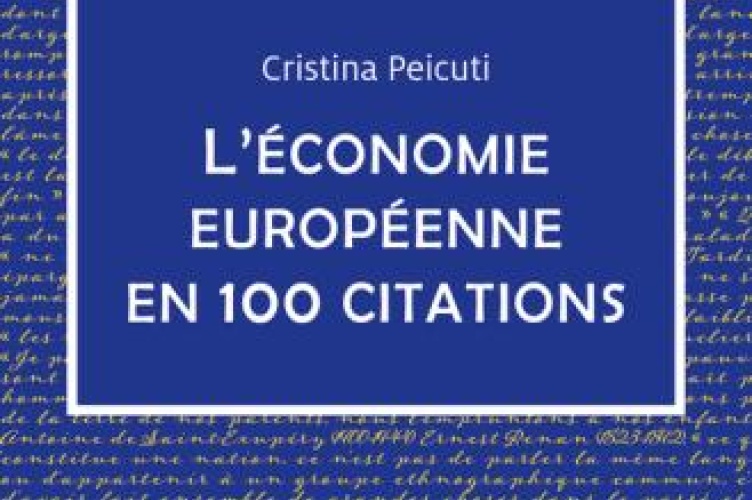This book is originally intended for students at the ESCP Business School and a truly European seat of learning with campuses in London, Paris, Berlin, Turin, Madrid and Warsaw. The book is written more generally for the public at large, because the market economy and Europe represent our living environment, the constant of our existence for thousands of years.
Europe is our common good. This anthology invites us to think of Europe in socio-economic terms, and thus discover that these terms vary little from one European country to another or over two and a half thousand years.
In geographical terms, this annotated anthology covers the 27 countries of the European Union, the United Kingdom and Norway. Chronologically, the book extends from Greek antiquity to the present day. Through insights and quotes from leading European thinkers, economists, sociologists, novelists, playwrights, politicians and all the European Nobel laureates in economic sciences, it serves as a crucial initial guide to European economic ideas, inviting the reader to explore more extensively the quoted sources.

The topics were chosen according to this constant, after researching European digital libraries and exchanging with their documentalists to identify the most recurring, most discussed economic topics in each country. The book attempts to combine the insider's perspective, provided by documentalists in each country, with that of the outsider, the European economic researcher that I am, in order to give a true picture of national economic concerns. Even if the specific concerns of each European country vary, the discourse is the same: it is not that of the triumph of commodity fetishism and the reign of the Golden Calf; it is about the longing for the freedom of enterprise, for a market economy based on competition, for the fight against corruption, for a fair distribution of wealth, for an economy at the service of mankind and therefore of the planet. For this reason, the book begins with these two quotes:
“There is no wealth or strength except in men.”
Jean Bodin [1529-1596], Les six livres de la République
“We do not inherit the earth from our parents, we borrow it from our children.”
Antoine de Saint-Exupéry [1900-1944], Terre des hommes
Campuses
